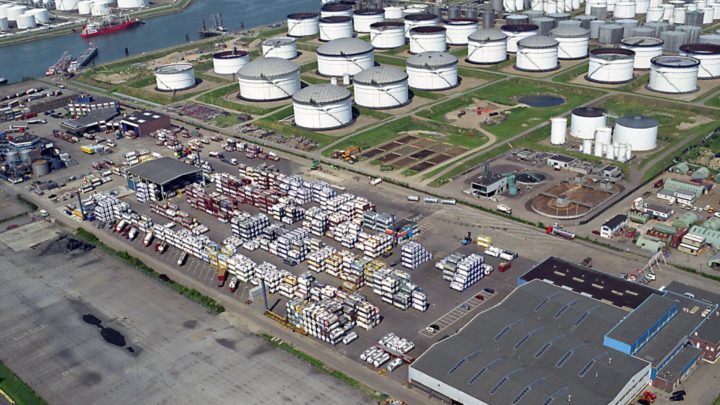
In the first half of the year, transport of liquid bulk rose at the European mega-hub by 4.6 percent. A 4.3 percent increase in crude oil was mainly caused by the flow of Russian oil through Rotterdam to India, in particular. Refineries in Northwest Europe are switching to non-Russian oil, with the result that Russian oil is finding its way to other markets.
A 9.4 percent decline in the throughput of oil products was mainly due to the structural decline in the imports and re-exports of fuel oil. LNG rose by 45.8 percent. There is very strong demand for LNG as an alternative to the natural gas entering Europe by pipeline from Russia.
However, Rotterdam Port said a 22.5 percent increase in other liquid bulk goods can be attributed, on the one hand, to a shift from transport in tank containers to chemical tankers, and, on the other, to stockpiling by purchasers of chemical substances. The port reckons that in the light of faltering transport chains, users are doing this to make sure they have adequate supplies of raw materials.
The throughput of containers generally was down 4.4 percent in TEU, and 8.9% in terms of weight. The difference between the two was attributable to an increase in the number of empty containers.
Ongoing disruption of container logistics
Rotterdam said there were two principal reasons for the decline in box throughput. The first is the loss of container traffic to and from Russia due to the sanctions, the uncertainty associated with the continuation of trade with Russian parties, and the discontinuation of scheduled services to Russia.
The second is the ongoing disruption of container logistics. Two years ago, the COVID-19 pandemic led to lockdowns and changes in consumption patterns. Container vessels were no longer able to comply with their sailing schedules, with disruptions in pre- and post-transportation as a result.
To make up time, large vessels are now often cancelling calls to ports in their itineraries (-5.5 percent calls in Rotterdam by comparison with last year), and loading and unloading more containers per call (+6.1 percent).
This results in peaks in activity at the port’s terminals, which were already very busy since containers are left there for longer periods on average because ship arrival times are more unreliable. As a result of these developments, shipping companies are currently using smaller ports of call for transhipment relatively more often than large ports such as Rotterdam.
A chain consultation platform has been established to monitor developments with all players in the Rotterdam container sector and to respond in the best possible way.
